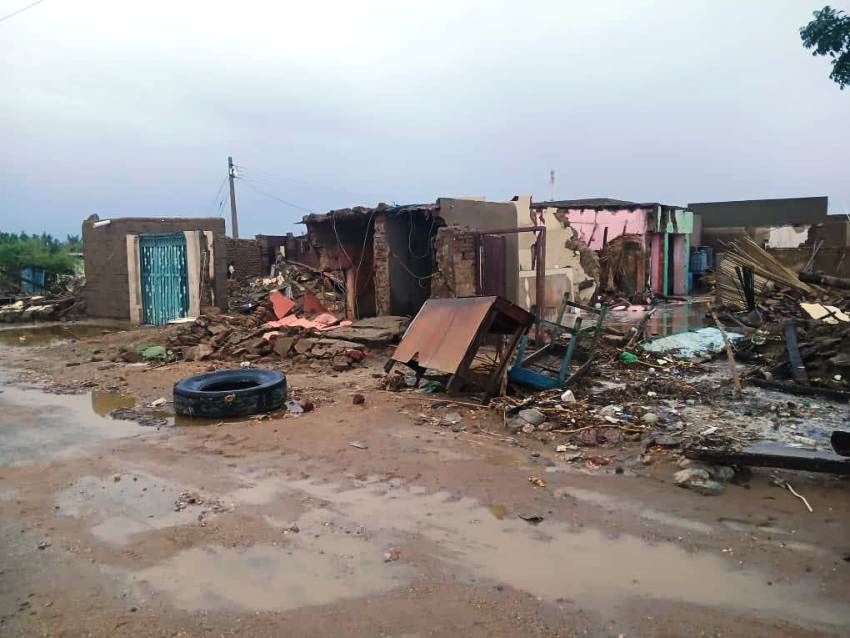
August 17, 2024 (PORT SUDAN) – Rains and floods have displaced an estimated 117,835 individuals (23,567 households) from locations across 12 different states across Sudan, data from the International Organization for Migration (IOM) shows.
The IOM Displacement Tracking Matrix (DTM) reported 60 incidents of heavy rains and floods that triggered sudden displacement between 1 June and 12 August.
It further observed 31 incidents of flood-induced displacement between 6 and 12 August, which reportedly triggered the displacement of about 96,465 individuals.
Approximately 32,611 structures, according to data provided by the UN migration agency, were either partially damaged or destroyed by the rain and floods.
Meanwhile, heavy rains and flooding have affected tens of thousands of people across Sudan, causing further displacement, injuries and deaths, the UN refugee agency (UNHCR) said.
Over a year of conflict, coupled with the heavy seasonal rains across Sudan, means refugees and internally displaced people face dire humanitarian situations.
Also worsening the situation in Sudan is the growing impact of climate change.
Over 11,000 people, including refugees hosted in the country and local communities in the eastern Kassala state, have been impacted by severe floods and heavy rains in the past two weeks, according to the UN agency.
This, it said, includes families that recently arrived after fleeing violence in Sennar state and who were sheltering in five gathering sites and reception centres.
Some have been displaced three or four times since the start of the conflict.
UNHCR and partners are reportedly on the ground making every effort to assist the most vulnerable. Together with state authorities, new land has been identified where tents are being set up to accommodate the affected families.
The new site is expected to host some 800 families newly displaced due to the flooding. UNHCR has already started erecting emergency shelters, with some 400 tents installed so far. Despite the ongoing rain, at least 200 families have been relocated.
In addition, UNHCR is planning to distribute plastic sheeting to refugees to repair roofs damaged by the storms.
More rainfall is expected in the eastern and western parts of the country. To mitigate similar impacts in other states including Gedaref, White Nile and Blue Nile states, UNHCR is prepositioning core relief items and shelter kits, cleaning drainages and building dikes to shore up internal roads to protect camps and sites hosting displaced people.
Flooding in the Darfur region is also impacting the already limited ability of aid agencies to reach people in need, in those areas where we otherwise do have access. The humanitarian needs are reaching epic proportions in the region, as hundreds of thousands of civilians remain in harm’s way and famine has recently been confirmed in a displacement site.
The conflict has already destroyed crops and disrupted livelihoods. The climate crisis is making those displaced even more vulnerable. Flooded land means people are unable to grow crops and graze their livestock, adding to food insecurity and hunger in areas also affected by drought and conflict.
The UN agency warned that as the conflict spreads across the country, people continue to move in search of safety.
To date, over 10 million people have been forced to flee their homes both within the country and across its borders.